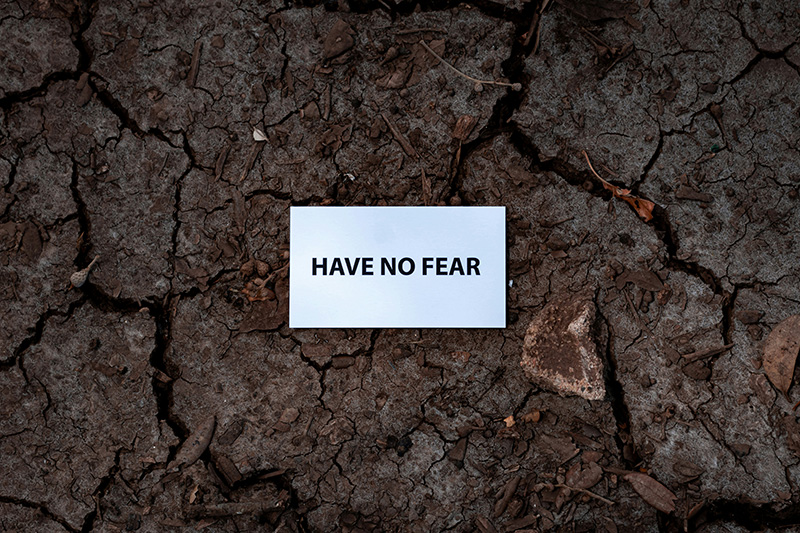
This fascinating documentary, about the working relationship between Robert Caro, a brilliant writer, and Robert Gottlieb, a genius editor, explores a professional bond that stretched over more than 50 years, five books, and 4,888 pages. It only recently came to an end because of Robert Gottlieb’s death.
Interestingly, both men at first declined to participate in the film, which Gottlieb’s daughter, Lizzie, directed and appears in as she conducts interviews with each man separately. “The work between a writer and an editor is too private for anyone else to see,” Lizzie, in a voiceover, quotes both men as having said, and later we hear Caro saying the same thing directly. By the end of the movie, which takes place in an office at Knopf, Caro’s longtime publisher, the men appear together in the film for the first time; they have decided to let the movie crew film them at work, but only if there is no sound. So we see them sitting together at a desk, looking at Caro’s pages, pencils in hand, but we aren’t privy to more than that.
As an editor and writer, I watched the movie several times, hoping for some special truths. First, I watched out of an interest to see what these two towering figures had to say about writing and editing, and then again to see what lessons about collaboration could be learned from their long, fruitful partnership.
The first lesson is perhaps an obvious one, but that doesn’t minimize its importance. Editor and writer have to trust that they are both trying to produce the best book possible. The final draft of The Power Broker, which won a Pulitzer Prize, weighed in at 1,050,00 words, which Gottlieb helped Caro whittle down to 700,000. Think about how hard it is to cut even 100 words from something you’ve written. The men worked together for three or four hours every day for a year. Gottlieb brought perspective to the work, and Caro brought passion and precision. Together they tossed out 350,000 words. Caro says this was the hardest thing he ever did, but implicit in his statement was his trust in Gottlieb. He understood that his editor would not eviscerate the heart of the book but had to get it down to publishable length. Gottlieb helped Caro preserve almost everything of importance he had worked to achieve.
President Clinton (whose autobiography, My Life, Gottlieb edited) said of him, “He could see any blob of clay and imagine it a statue and help you figure that out and chisel your way to victory.”
The second lesson is that both sides of the equation — writer and editor — have to be of matched determination. This is something novice writers need to know and published writers have to remember. Editors need to remind themselves of it too. In Gottlieb’s words, “There has to be an equivalence of strength. If you aren’t strong enough to give the writer what he needs, which is your true, strong opinion, if you have to hold back and be nervous, it’s not going to work, because you’re not giving the writer what is necessary. There has to be an equality.”
In The Path to Power, the first of Caro’s multivolume biography of LBJ, there were 150 pages about the Texas Hill Country where Johnson grew up. Gottlieb wanted to cut a long section in these pages about the grass. “He wrote something insulting in the margin,” Caro says. “There was a tremendous battle, an angry, I mean angry, angry battle. It wasn’t one day. And a lot of angry things were said.” Caro finishes his story by saying that they got over the fight eventually because all the conflicts he and Gottlieb had were about what was on the page; they held nothing against each other personally. Their goal was always the same: the best book possible. (It’s not totally clear from what Caro says in the movie, but it seems his wishes prevailed and the section about the Hill Country grass stayed in, but it’s also possible that a compromise was reached and the pages remain, but in shortened form.)
The third lesson is that disagreements are normal and unavoidable. Caro repeats more than once that Gottlieb cared as much about the writing as he did, but “that doesn’t mean we agreed about the writing, and particularly, I mean, a lot of it came down to semicolons. Because he thinks I use too many.” Neither Caro nor Gottlieb would give in about these semicolons. “So there was a lot of stalking out of rooms,” Caro says.
“Everything is of total importance [to Caro],” Gottlieb says. “The first chapter of the book and a semicolon — they’re of equal importance. I too think a semicolon is worth fighting a war about.”
So, not only were they equal in their vision, they were equal in their stubbornness.
For The Power Broker, Caro conducted 522 interviews. He followed a precept he first heard as a novice newspaper reporter from a boss at Newsday: “Turn every page,” meaning, don’t be lazy, do the work. “Don’t assume anything.” For The Path to Power, Caro rooted out a man in Texas no one had ever interviewed, and who had been assumed dead, to find out the truth about a piece of history that had been blurred over: Had Johnson stolen 87 votes in order to get elected to the Senate in 1948? Following a lead, Caro found the man, a former Texas election judge, in a backwoods trailer, learned the man had written the story of his role in what happened, read the manuscript, and from it was able to answer the question most Johnson biographers had dismissed with the phrase “no one will ever know.” (Johnson did steal the votes.) Not everyone can do the painstaking research that resolves a long unanswered question, but we all can aspire to “turn every page” in order to write the best work possible.
Caro talks about how he could speed things up, take less than seven years to write a book, get through each one with less work and less rewriting, leave out things he thinks are important, no one would know the difference, but he would know, so he follows his research wherever it takes him and writes and rewrites and rewrites some more; he is guided by his own sense of necessity. This “lesson” was a last-minute addition of mine. If I hadn’t put it in, no one would know the difference, but I started thinking about how important it is and I would have felt remiss if I hadn’t added it, because it applies to all writing, whether fiction or nonfiction.
Another lesson, which is actually more of a reminder, is offered by New Yorker editor David Remnick, whom Lizzie interviews about Caro: “Writing never gets easier.”
One final thing I learned from the movie: I’ve missed out on something important by not having read Caro’s books — The Power Broker, The Path to Power, and the three other published books in the LBJ chronicle. The strong consensus is that they are elegant, powerful, and essential reading to understand political power and how it works in the U.S.
(Turn Every Page: The Adventures of Robert Caro and Robert Gottlieb is available on most streaming services for a fee and free for subscribers to the Criterion Channel.)
- Invaluable Lessons I Learned About Editing From “Turn Every Page" - January 3, 2024
- The Benefits — and Fun — of Freewriting - February 20, 2023
- Writerly Reassurance From a Few Who Have Been There - March 24, 2020



